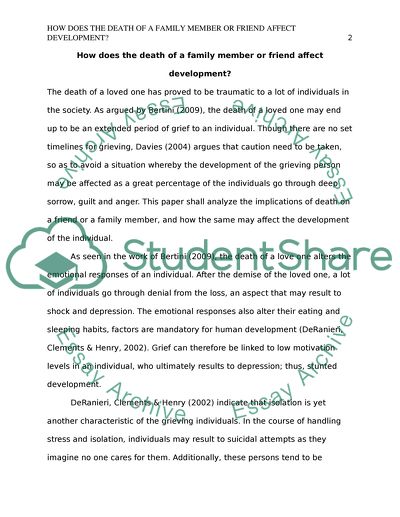Cite this document
(“How does the death of a family member or friend effect development Research Paper”, n.d.)
Retrieved from https://studentshare.org/psychology/1622445-how-does-the-death-of-a-family-member-or-friend-effect-development
Retrieved from https://studentshare.org/psychology/1622445-how-does-the-death-of-a-family-member-or-friend-effect-development
(How Does the Death of a Family Member or Friend Effect Development Research Paper)
https://studentshare.org/psychology/1622445-how-does-the-death-of-a-family-member-or-friend-effect-development.
https://studentshare.org/psychology/1622445-how-does-the-death-of-a-family-member-or-friend-effect-development.
“How Does the Death of a Family Member or Friend Effect Development Research Paper”, n.d. https://studentshare.org/psychology/1622445-how-does-the-death-of-a-family-member-or-friend-effect-development.


